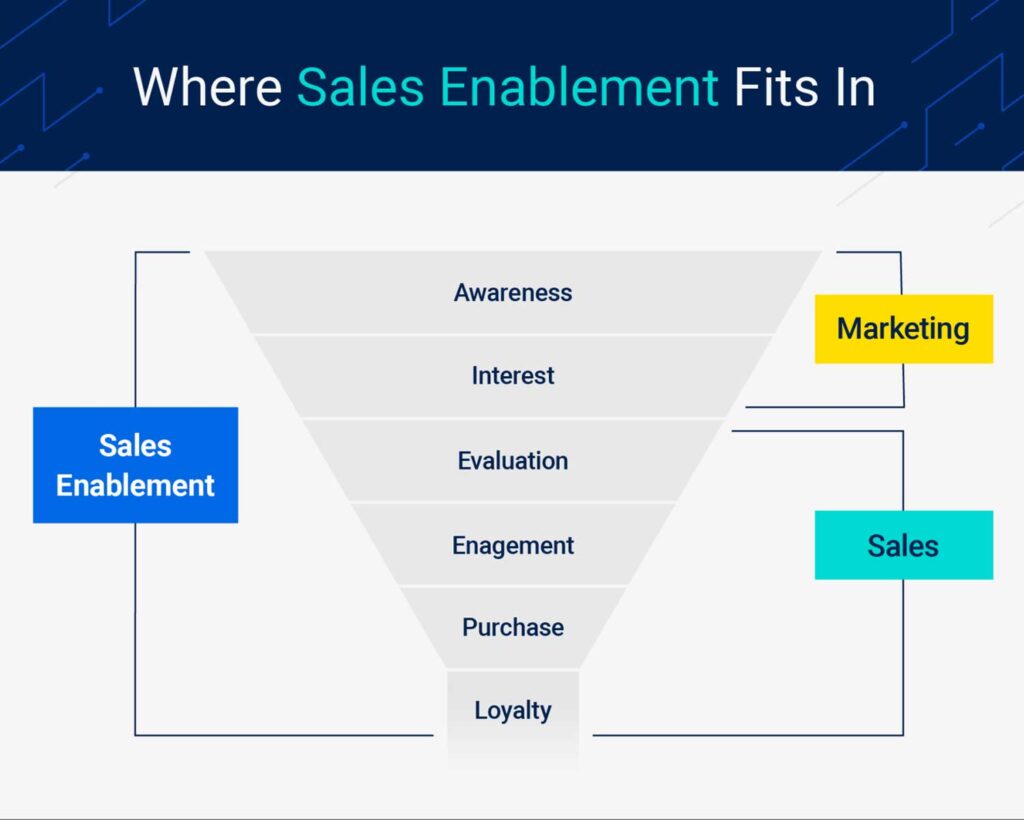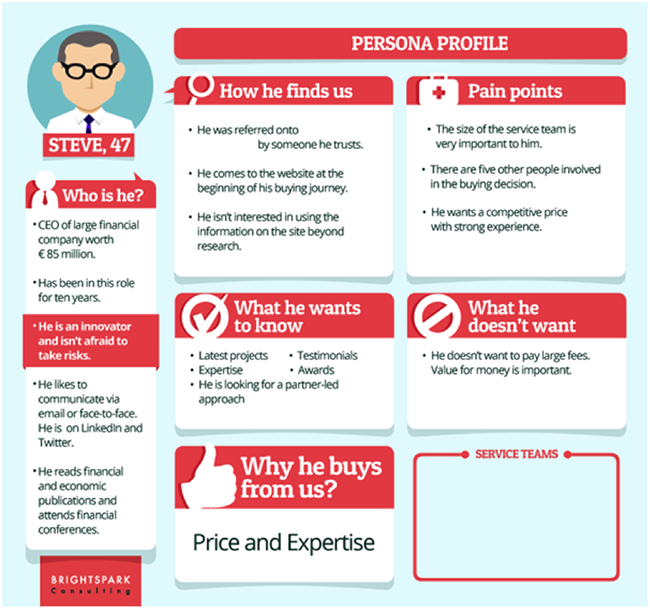Your sales team connects your customers to your business. Sales enablement for manufacturers helps to ensure the overall success of your company.
Manufacturing can be a highly lucrative industry, with revenue projected to reach $7.9 trillion this year. However, manufacturing purchases can be overwhelming and intimidating in an industry filled with technical lingo and complex machinery. A sales team armed with information and resources can help buyers gain the confidence they need to commit to their purchase. From website must-haves for manufacturing companies to effective marketing for manufacturers, businesses can provide numerous tools to their sales team to increase the likelihood of success.
Keep reading to learn more about sales enablement for manufacturers.
Key Takeaways
- Sales enablement is the process of arming your sales team with the resources they need to close more sales.
- Sales enablement is important because it helps you avoid a disjointed sales approach and inconsistent efforts that can lead to eventual sales loss.
- Marketing and sales teams are responsible for sales enablement, as these departments work together for a more effective and efficient sales process.
- Create an effective sales enablement strategy by creating a plan, developing useful content, and implementing technology to maximize your efforts.
What Is Sales Enablement, and Why Is it Important?
Sales enablement provides your sales team with the resources they need to close sales and increase conversion rates. Such resources could include:
- Knowledge/training: The more your team knows about your products, the better they can explain them to your customer base.
- Content: Delivering the right message to the right people can help influence purchase decisions.
- Tools: Demonstration videos, research findings, and statistics can convince a buyer to commit to a purchase.
- Intuitive website: SEO basics for manufacturing and industrial companies can provide a positive user experience that allows visitors to find the information they need to buy your products.
Through sales enablement, you can align your people and processes with your priorities and goals to generate more revenue and grow your business. You can maximize your resources and streamline your efforts to ensure more efficient sales processes that deliver better ROI and earn higher success rates.
Sales enablement for manufacturers is important because, without it, your team could experience:
- Disjointed sales approach: Sales enablement ensures your teams work together toward the same goal. Without sales enablement for manufacturers, sales teams may not have the most effective tools to help customers make the most informed purchase decisions.
- Inconsistent efforts: If team members aren’t on the same page when it comes to branding, messaging, or guiding customers through the sales funnel, you risk damaging your brand identity and creating confusion among your customer base.
- Lost sales: Without streamlining your efforts, you risk prolonging your sales cycle, which can cost you business over time. Sales enablement gets your teams on the same page and ensures everyone delivers an effective message for optimal results.
Sales enablement is key to providing a positive user experience for your customers and increasing the likelihood of closed sales and higher conversions. The following video goes into more detail about why sales enablement is important for business growth and success:
Source: Hubspot Marketing on YouTube
Who Is Responsible for Sales Enablement for Manufacturers?
The responsibility of sales enablement falls mainly to marketing and sales departments. Through audience research, marketing teams have a strong understanding of your target audience and what kind of content helps boost sales and drives website traffic for manufacturers. They can provide tools like:
- Blog articles: Marketing teams know what topics your audience wants to read, and they can provide material that resonates.
- Video content: How-to, instructional, and demonstration videos can help customers see how equipment works and highlight features and functionality that may be difficult to grasp through product descriptions.
- Conversation guides: Marketing can supply sales teams with talking points to help sell your products to prospective customers.
Once the marketing department has created these tools, they hand them over to the sales team, who uses them to connect with new and current customers. In these interactions, sales team members can identify any gaps in the information-sharing process and alert the marketing team of specific tools that would help them meet their goals. By working together this way, marketing and sales teams can help funnel people through the buyer journey and streamline the sales process to be more efficient and effective.

3 Steps to Sales Enablement for Manufacturers
When it comes to developing an effective sales enablement strategy, there are three steps your company should follow for the best results.
Step 1: Develop a Plan
To create a new sales enablement strategy, you must first identify the reason for your efforts. Whether sales numbers are down or customers have left negative reviews, you must determine why you need a sales enablement strategy.
Next, identify your target audience and learn what they need from your marketing and sales team. Maybe they want facts and figures, a product demonstration, or are simply on a fact-finding mission for their superiors. Create buyer personas to identify your ideal target audience. Knowing who you’re trying to reach can create useful materials to help sell your products.

Image Source: Brightspark Consulting
Finally, set goals for your sales enablement strategy. Understanding what you’re trying to achieve (whether it’s a dollar amount or customer satisfaction rate), you can develop a plan that will help you reach your objectives.
Step 2: Create Useful Content
Once you know who you’re trying to reach and what needs you’re aiming to meet, you can begin to create useful content that helps portray the value and quality of your products to your customers. From brand marketing for manufacturing companies that help you tell your story to content marketing for manufacturing companies that answers questions for your audience, useful content is key to selling your products. Such materials could include:
- Presentations
- Case studies
- Whitepapers
- Research findings
- Customer testimonials
Your audience research will help you know what kind of material would be most effective in helping convince customers that your products are the ideal solution to their problems.
Step 3: Implement Technology
Creating an effective sales enablement strategy can be time-consuming, but numerous tools are available for manufacturing businesses to help streamline the process. Help empower your sales team through:
- CRM integration: Save time on manual data entry and connect leads to sales reps.
- Sales content management: sales teams can access all the content they need from one dashboard on any device.
- Video coaching: Practice video creation and obtain third-party feedback before going live to your customers.
- Sales intelligence: Gather data and use analytic insights to improve performance and processes.
Numerous platforms can help your team maximize their efforts and work more efficiently and effectively for the best results.
Create an Effective Sales Enablement Strategy
Shanahan Strategy follows marketing trends for manufacturing companies to create digital marketing strategies that help increase revenue and generate growth. Whether you want to develop successful marketing campaigns or empower your sales teams with the tools they need to succeed, Shanahan Strategy can help you achieve your goals.
Contact Shanahan Strategy today to learn how we can help you create an effective sales enablement strategy that delivers results.

